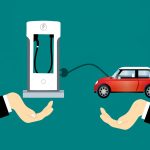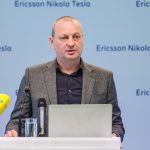New charging stations are part of a more comprehensive European initiative.
The NEXT-E consortium and the European Commission have signed a financing agreement for the construction of 222 high-speed and 30 ultra-high-speed electric vehicle charging stations in Central and Eastern Europe, including Croatia, announced the Croatian Electric Power Company (HEP), reports Jutarnji List on November 11, 2017.
The contract was signed during the Days of Digital Transportation event in Tallinn, Estonia, and partners of the NEXT-E consortium signed it with the INEA agency. It will enable the construction of charging stations for electric vehicles (EV) in the Czech Republic, Slovakia, Hungary, Croatia and Romania.
The NEXT-E consortium will receive 18.84 million euros for the project implementation, which is the largest subsidy so far approved for an EV project under the CEF (Connecting Europe Facility). The consortium will install 222 fast charging stations (50 kW) and 30 ultra-high-speed stations (150-350 kW) along the central TEN-T corridors. For the first time, it will be possible to travel long-distance through several countries, entirely using electricity as a power source.
The consortium consists of E.ON Group, MOL Group, Croatian Electric Power Company in Croatia, Petrol (in Slovenia and Croatia), Nissan and BMW.
“In a political sense, NEXT-E is an important innovation project in which the industry has invested a lot of effort, and which is supported by the European Commission. It also foresees close co-operation with other similar projects, emphasising the goal of increasing the European influence. The goal of our policy is to finally enable citizens to travel across the European Union using alternative fuel vehicles,” said director general of the European Commission’s Directorate for Mobility and Transport Herald Ruijters.
Perica Jukić, CEO of HEP, said that HEP’s participation in the NEXT-E project represented a significant international step forward for his company in terms of cooperation with prominent energy companies in Europe and creating new and innovative business models. “Within the HEP’s electricity generation programme, more than 70 percent of electricity is generated from sources which do not emit CO2, so the development of electrical mobility fits perfectly into our low-carbon vision of development,” Jukić said.
Currently, the charging stations are scattered and often uncoordinated, creating a risk of overlaps and interruptions in the network. The NEXT-E project has been launched to respond to this challenge and to build a viable and cost-effective system that enables long-distance and cross-border driving. The project will also take advantage of previous experience and use it in countries which have not yet had significant EV activities, such as Hungary and Romania.
It is expected that fast stations will be set up in 2018, while ultra-fast stations are planned for 2019. The final stations are scheduled to be installed by the end of 2020.
Translated from Jutarnji List.








